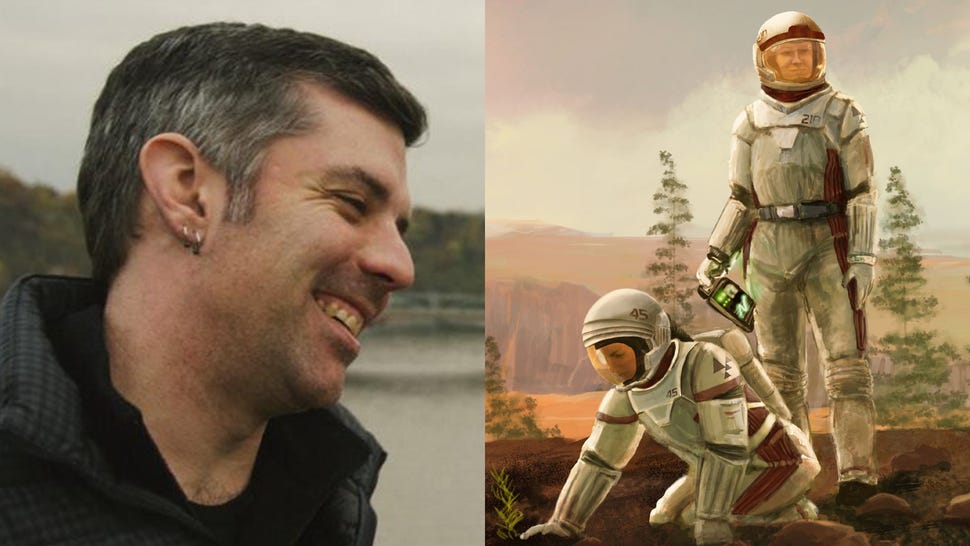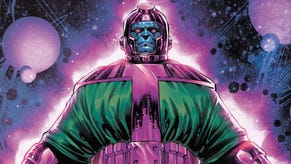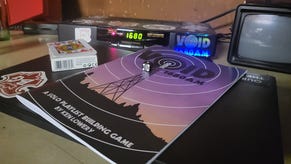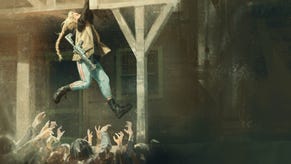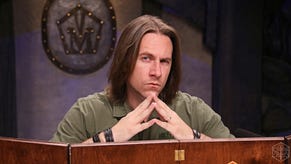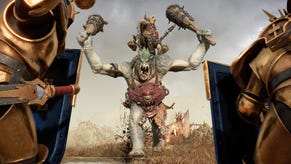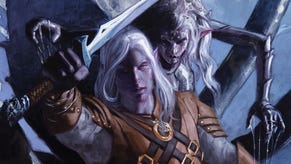“A lot of people hadn’t even asked about tabletop IPs”: Film producer Chris Kaminski on adapting Terraforming Mars and other board games for the screen
As well as Terra Mystica, Anachrony and Trickerion.
Christopher Kaminski is a film producer and founder of Cobalt Knight, a production company that has recently acquired the adaptation rights to popular board game Terraforming Mars, as well as Terra Mystica, Anachrony and Trickerion.
We sat down with Kaminski to discuss Cobalt Knight's plans for their acquired rights, what makes tabletop games unique when it comes to adaptation and the producer's dream projects.
Cobalt Knight has acquired several tabletop film licenses now. From Terraforming Mars to Terra Mystica. What's the game plan? Why acquire so many licenses?
Most projects never make it to screen or take a long time. It's almost impossible to gauge how long it will take for something to happen, especially when we're talking about the feature film side, which moves even more slowly. One of the things that I learned early on when I was making the transition from video games into film was that really successful projects can take six years or eight years to get made. Since we can't predict how long any of these projects will take, it's best to spread out our our efforts so that we have the maximum chance of one of these projects making it and hopefully being really great - that's the game plan.
It wasn't always the plan. To be honest, this was a little bit of a Bob Ross style happy accident. When I first made the transition over from doing video games to film and television, I wasn't exactly sure how everything was going to work. I was greeted like a wizard visiting from a foreign land. But it's not that different from making films. As I was known as being the video game producer, a lot of these studios were really interested in me helping with video game adaptations. For a handful of reasons, video game adaptations didn't really work out. I was working primarily on the feature film side and we were working on some really cool adaptations that have yet to come out. But again, because these things move slowly, we were doing this in 2018/2019 and very quickly ran into the pandemic, which put all of these early projects on ice for an indeterminate amount of time.
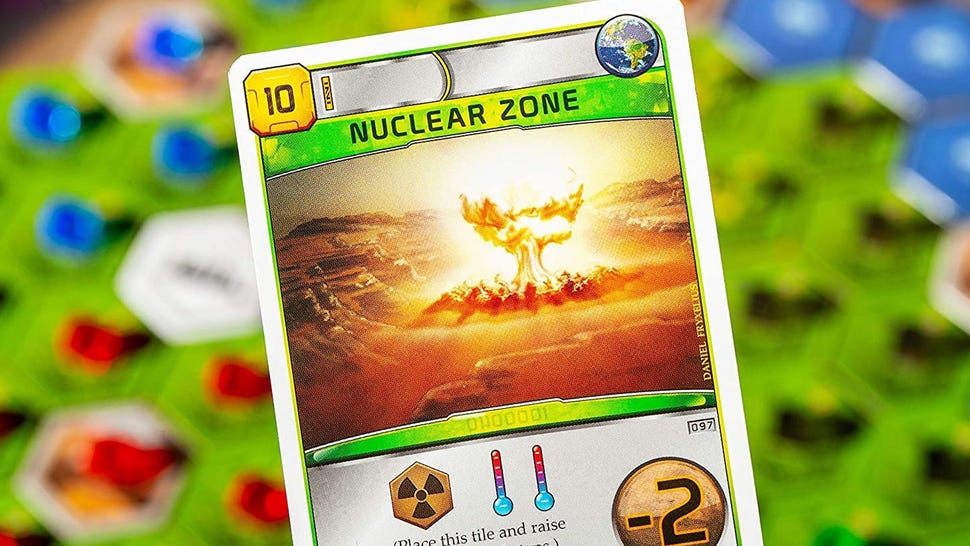
I realised that video games big budget feature films was too narrow of a path. That's when we started Cobalt Knight. Before I partnered up with Chris Knox, who has been a friend of mine for a long time I was just an independent producer. We actually started working with original projects and original stories, because those are things that we really like. We knew some really amazing writers who had some great stuff. But we realised Hollywood really loves IP. We started off with sort of the the normal things, like adapting books and comics, and we were looking at Japanese shows that we could adapt into English language versions.
You have to work a lot harder to alienate your audience when adapting a board game.
One of the ideas was board games and I wasn't sure how well that was going to work, because I was sure that all the really great stuff was already taken. It just seemed like such an obvious thing, but we tried it anyway. Colin Libre, our our creative executive was much more optimistic about this than I was initially. He went out and talked to just about every publisher out there. We were very surprised to find out that not a lot of people hadn't even come to ask, and publishers were very willing to have conversations with us. They were excited and honoured that we took an interest in their games. Everybody at Cobalt Knight plays board games and we have known about this world for a long time. Unlike the video game world, most of the companies are much smaller in the tabletop industry, so it's much easier to navigate. The fact that we are board gamers ourselves really helped those conversations, because it became clear that we weren't just here to soullessly mine IP.
Are tabletop games the next, untapped market for movie adaptations?
We'll have to see if, if the audience agrees with us. But I really do think that it is. There are a lot of really cool things about board games that I think make their adaptation a really good idea. One of the inherent challenges to adapting a video game into anything is that video game main characters are meant to be very hollow, so that you can project yourself onto them. There's a reason why Link or Master Chief doesn't talk, because you're supposed to be in their shoes. That doesn't really work for a film or a TV show, because you can't have just an empty main character, so you have to define it. As soon as you define it in a way that you didn't imagine when you were playing the game, then you feel disconnected from that.
You don't have that same issue with most board games. In Terraforming Mars you're playing as a corporation and in Terra Mystica, you're playing as one of the factions, so you don't have that same major obstacle. Anachrony has a little bit more of a story - you're prepping for the asteroid to hit and then you're recovering from the aftermath of it. But there's a lot more leeway in terms of how you can tell that story and where you choose to focus. I think so long as you get the flavour of the world and you get the emotional tenor of what it feels like to play that game, then it's much easier to find an audience amongst people who are genuine fans of the game. From an adaptation standpoint, it's really fun because it gives you a big sandbox to play in. You have to work a lot harder to alienate your audience when adapting a board game.
We don’t want to decide on an approach too early on, as there could be people out there who might have a great take on an adaptation.
So, board games’ lack of story is actually a strength when it comes to adaptation?
Absolutely. There are a handful of adaptations that probably shouldn't have worked. Two of my favourite examples are Pirates of the Caribbean and the Lego Movie - those adaptations have no business being half as good as they are. I rewatched Pirates of the Caribbean a few months ago, and I've just I'm shocked that how just enduringly good it is. We use that as our goal of what we want to hit. Terraforming Mars is a good example. Each of the corporations in Terraforming Mars has a really strong identity. Thinking about the building blocks of the story and what kinds of interesting characters might come from these situations - that's how we try to approach finding a story in something where it doesn't inherently exist.
Would you ever consider adapting something with more of a story like Pandemic Legacy or Gloomhaven?
Absolutely. We got excited about Anachrony has a little bit more of a story, though not quite as detailed like Pandemic Legacy. I think that you need to just employ a different strategy when you're going into that - approach it more like you would a novel as opposed to something like Pirates of the Caribbean or Lego Movie. In some ways it could be easier, mainly because a lot of writers have experience adapting linear stories.
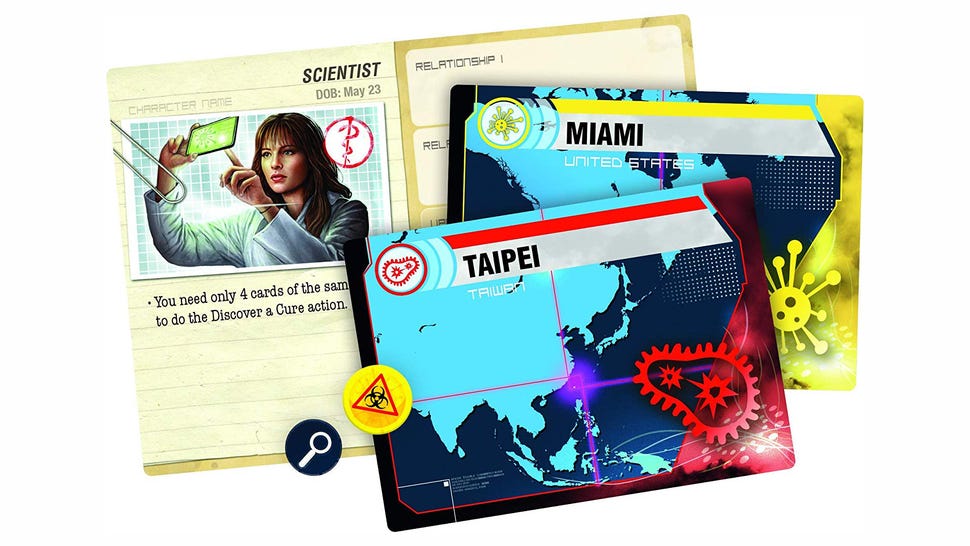
Do you have any details to share about Terra Mystica and Anachrony’s adaptions?
One of the first things that we have to decide when we take on any of these projects is whether we're going to do it as either a feature film or a television series. Though we do like to keep things open early times. But sometimes one really feels like it would benefit from one path or the other. With Terraforming Mars, we knew early on that we were leaning very heavily towards a series adaptation because the game takes place over generations. We wanted to capture that it's almost impossible to play a complete game in a two-to-three-hour experience. Anachrony, on the other hand, is about one single incident and has a more constrained scope that feels better suited to a movie. You could make it into a series but it feels like going beyond one season means straying away from the vision of the game itself. And similarly, Tickerion is about competing for a particular piece of a magical artefact.
We were very curious about Terra Mystica, because that one is so epic. The fact that you have a combination of fantasy and sci fi, and the fact that the world of Terra Mystica is a planet inside of the universe of it's sequel, Gaia project, is super cool. We really could go either way with that one and we haven't firmly decided, although we are leaning towards a movie for a couple of reasons. Seeing the effects of terraforming with a huge CGI budget on a giant screen in IMAX, would be amazing.
What I like about genre projects, is you can talk about things that are very relevant to modern life but it doesn't feel as heavy.
We don’t want to decide on an approach too early on, as there could be people out there who might have a great take on an adaptation. For example, Matt Robinson, if you don't know him is a really great writer who did a rewrite on the upcoming Edge of Tomorrow sequel - apparently he did such a good job with that that Emily Blunt told Disney that Matt needs to write Jungle Cruise 2 - and he's a huge board gamer, but he's kind of carved his niche and is comfortable writing films.
A television series adaptation of Terraforming Mars could provide the perfect opportunity to explore Terraforming Mars’ themes of corporate espionage.
What I like about genre projects, specifically, is you can talk about things that are very relevant to modern life, but if you set it on Mars, it doesn't feel as heavy. You could both look at how great corporations are, but also at the terrible things they might be doing on Mars. It feels more approachable. Adam McKay's movies are great, but, you know, when he's talking about the problems with Wall Street, even if it's Margot Robbie in a bathtub explaining derivatives, it still feels heavier than if you're talking about corporations destroying each other on Mars, 300 years in the future.
Imagine you could get any tabletop licence you wanted - what would it be and what would you do with it?
That’s tough, because Terraforming Mars was already in our top three. One of them would be Magic: The Gathering, because I've personally played Magic: The Gathering since like 1994. But I know Hasbro are already doing a series based on it. I would love to do Gloomhaven as well.
My dream is a Scythe adaptation
I can't say too much, but may have talked with the artist behind Scythe - Jakub Rozalski - in the past. That’s all I can say.
